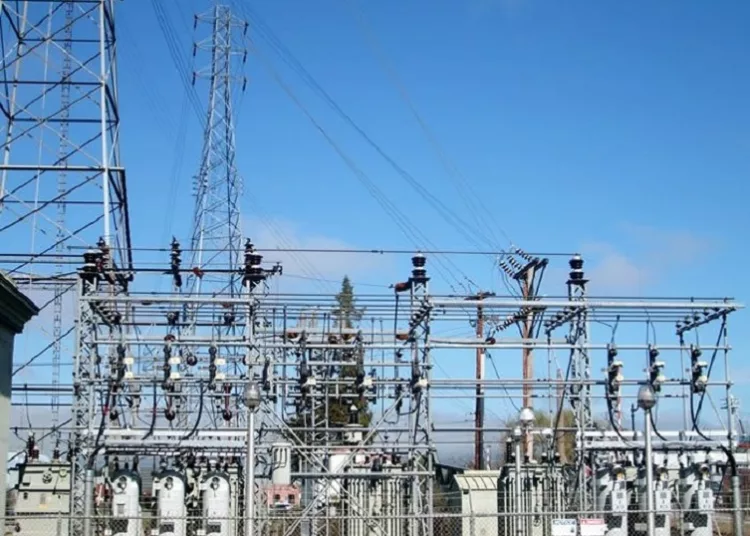Nigeria’s power sector, facing numerous challenges for decades, has been a source of concern for many. Despite the privatisation of the sector, expected to bring development, the illiquidity crisis in the sector, which has necessitated government intervention, remains a significant issue yet to be solved.
However, analysts have suggested that attracting more investments in the sector, rather than relying on subsidies and government interventions that do not guarantee power supply, will be a game-changer for the sector.
In 2024, the federal government anticipates subsidies to reach N1.67 trillion, marking a substantial 170 per cent surge from the N618 billion shouldered in 2023. Analysts find this increase alarming, especially considering that subsidies have failed to ensure a consistent power supply.
From 2015 to 2023, the government invested trillions in electricity subsidies without yielding significant improvements. The surge to N1.67 trillion this year is attributed to the depreciation of the naira and inflation. The federal government claims to have provided N7 trillion in direct interventions by 2023 to support the sector.
According to energy experts, in a partially deregulated industry, Distribution Companies (DisCos) find subsidies uncomfortable, preferring a cost-reflective tariff. Currently, tariff is set at about N140 per kilowatt-hour, but consumers are presently paying around N70 KW/h. This situation has left some DisCos burdened with debt.
Many believe that the current subsidy approach is unsustainable. Nigeria has a national budget deficit of N9.8 trillion in the N28.8 trillion 2024 budget, and with 98 per cent of government revenue allocated to debt servicing, there are valid concerns about the financial viability of the subsidy system. This, according to stakeholders, means that more investments in the sector will be a game-changer and not subsidies.
Founder of The Tony Elumelu Foundation, Tony O. Elumelu, stressed the urgent need to invest in Nigeria’s power sector.
Also, the chairman, board of directors of Eko Electricity Distribution Company (EKEDC), Dr. Dere Otubu, emphasised the need for increased investment in the power sector to meet the growing energy demand of Nigeria. He stated that although progress had been made in reforming Nigeria’s electricity industry, more capital investment was required to expand generation, transmission, and distribution capacities.
An adviser to President Bola Tinubu on energy, Olu Verheijen, said that electricity distribution companies in Nigeria will need an estimated N2 trillion or about $2.5 billion in capital to improve power supply to Nigerians. She added that new investors need to revive the industry that can barely supply power to nearly 200 million people. “We need to set policies that facilitate reorganization and recapitalization and bring in new partners with new capital,” she said.
Speaking at an event last month, the immediate past managing director of Abuja Electricity Distribution Company Plc, Engr. Adeoye Fadeyibi, noted that negative cash flow in the industry was affecting operations and the ability to improve power supply to customers. Adding that presently only Eko, Ikeja, and Abuja Discos can continue as a going concern.
Speaking about the privatisation of the sector, a power sector analyst, George Amoko, said the critical roles of the Discos in the industry must force stakeholders to collaborate and implement solutions in the sub-sector. Some solutions to improve Discos’ performance, according to him, included promoting a cash-less policy for transactions, engaging in aggressive cash-drive activities, prioritizing service delivery to Maximum Demand (MD) customers, and improving billing and collection efficiencies. He said the Discos made significant progress in the areas of network growth, customer-centricity, and health and safety.
A group of investment research analysts, XGY Limited, in their recent report said investors in the sector look for certain things in a company before they invest in any DisCo. According to them, Eko Electricity Distribution Company EKEDC has a remarkable journey and achievements that have made it a key player in Nigeria’s electricity distribution sector, serving as a shining example of operational efficiency, corporate governance, and customer happiness, setting the bar for others in the business.
Also, according to the group, the Abuja Electricity Distribution Company (AEDC) stands as a vital component among power distribution companies in Nigeria. They said these are good examples
However, the planned sale of the federal government’s 40 percent stake in electricity distribution companies (Discos) by 2024 is encountering growing obstacles, raising uncertainties about the proposed timeline.
Experts said that the path toward complete privatization is riddled with challenges, including investor skepticism and market uncertainties. Institutional hurdles are identified as a major roadblock, with concerns about corruption and pressure points playing a significant role.
The Bureau of Public Enterprises (BPE) recently announced intentions to sell the remaining 40 per cent shares in Discos and other assets in 2024.
However, stakeholders emphasise the need for conducting an audit and addressing outstanding issues before proceeding with any sale.
The revocation of Kaduna Disco’s operational license by the Nigerian Electricity Regulatory Commission (NERC) in January 2024, due to a substantial debt of N93.42 billion for unaccounted energy, adds to the complications.
Amidst the challenges faced by Nigeria’s power sector, stakeholders stress the importance of collaboration and investments in 2024. For instance, an energy expert, Segun Onaade proposes a moratorium on Discos through the Central Bank and a comprehensive assessment of the national grid.
Also, analysts recommended addressing issues in the Electricity Act, improving gas availability, and implementing reforms for sustainable and efficient electricity supply. They highlighted persistent challenges in the power privatization process and urged strategic interventions for positive outcomes.
We’ve got the edge. Get real-time reports, breaking scoops, and exclusive angles delivered straight to your phone. Don’t settle for stale news. Join LEADERSHIP NEWS on WhatsApp for 24/7 updates →
Join Our WhatsApp Channel











